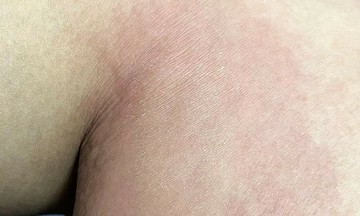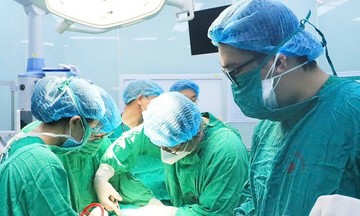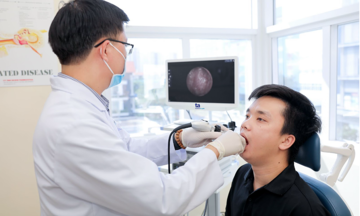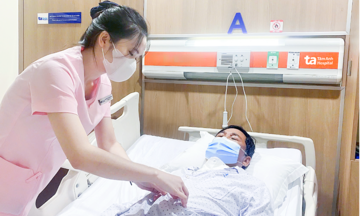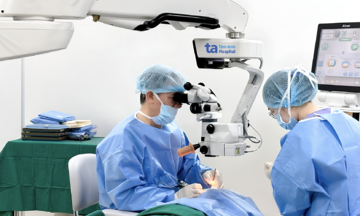The patient, from Hung Yen, has a history of diabetes and has been receiving treatment for a year. Recently, she experienced frequent bowel irregularities, passing mucus and blood in her stool, and had a poor appetite. Five days prior to admission, she developed severe bloating, abdominal pain, nausea, and was unable to have a bowel movement. She was diagnosed with rectal cancer, one of the digestive cancers with the 5th highest mortality rate in Vietnam.
Due to her age and poor health, her family was hesitant about surgery. After consultations with doctors at K Hospital, they decided to proceed. Given the patient's advanced age, history of diabetes, obesity, and thick abdominal wall, minimizing surgical trauma was paramount. The doctors at the General Surgery Department I opted for a laparoscopic Hartmann procedure, a common and effective method to remove the rectum and tumor, creating a colostomy.
This surgical method is often indicated for emergency bowel obstruction surgery due to rectal tumors in frail elderly patients. In this case, doctors used laparoscopic surgery to minimize trauma and postoperative pain.
In just over an hour, the surgical team removed the affected portion of the rectum, closed the lower end, brought the upper end out to create a colostomy, and carefully controlled bleeding. The surgery was successful, and the patient recovered well. Removing the tumor not only limited bleeding but also extended her lifespan. The minimal blood loss during surgery demonstrated the doctors' care and professionalism in handling this elderly patient's case.
Post-operatively, the patient was transferred to the intensive care unit. On the second day, she could consume liquid porridge, and by the third day, she was able to walk with assistance. A week after surgery, she was alert, recovering well, able to eat porridge, with a well-functioning colostomy. She has since been discharged.
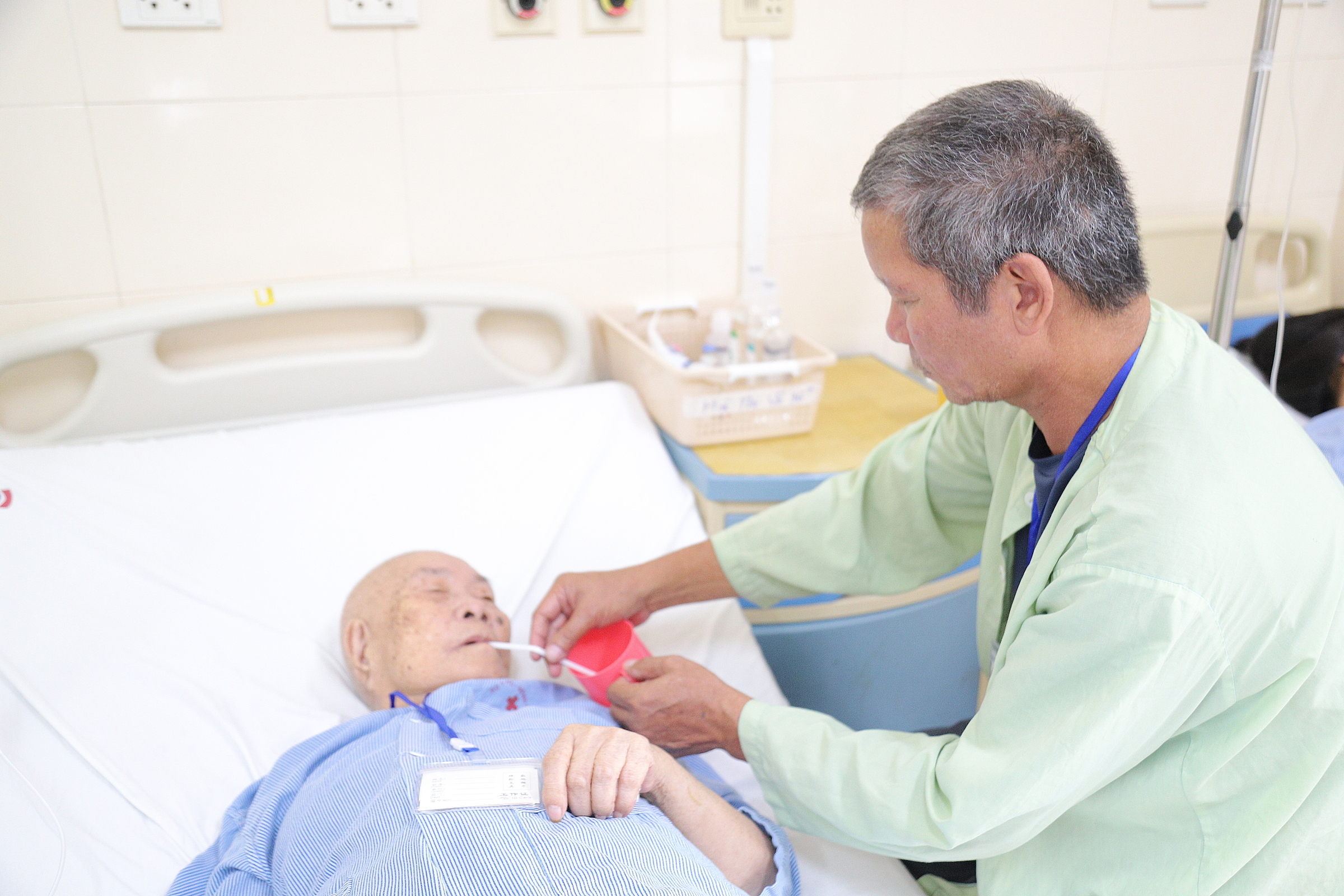 |
The patient is stable after surgery. Photo: Manh Tran. |
Associate Professor Pham Van Binh, Deputy Medical Director and Head of General Surgery Department I, considered this case among the most complex due to the patient's age and health status, yet her recovery was remarkable. Rectal cancer is a significant health concern, especially among the elderly. It is one of the most common cancers with high mortality rates in this age group.
Many families with relatives over 70 diagnosed with cancer often feel a sense of resignation and forgo treatment. With modern techniques and medical expertise, many patients in their 80s and 90s can undergo successful surgery, improving their quality of life.
"This case is not just a successful treatment story; it's a reminder of the importance of early cancer screening to prevent the disease from progressing to advanced and difficult-to-treat stages in old age," Dr. Binh said.
Groups needing rectal cancer screening include those over 50 and individuals with a family history of the disease, such as parents or siblings. Those who have had polyps removed during previous colonoscopies should also undergo regular screening as recommended by their doctor.
Le Nga




